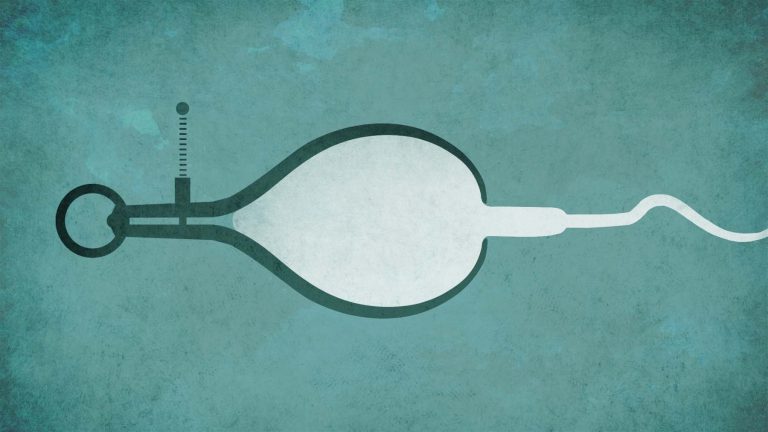Facing infertility can be extraordinarily stressful, and for some, it may provoke anxiety or depression. With everything on your mind – appointments, treatment options, cost, success rates – you may find it difficult to keep track of your mental health, too. There are three very common mental health issues facing people with infertility: learning how and when to talk to people about infertility, managing your stress, and finding a network of support.
The Problem with Well-Meaning Relatives
For some people, one of the hardest parts of dealing with infertility is figuring out how to talk and communicate these experiences and emotions to friends and family. Humans are social creatures; we’re used to telling others about our problems, but infertility and miscarriage remains a taboo topic in many cultures which can become isolating and stressful for couples. It is equally likely that you yourself may feel embarrassed or guilty about your infertility and not something you want to share with others.
One approach that can help is to discuss and establish boundaries with your partner about exactly how much you want to share, with whom, and when. You and your partner should be on the same page, so to speak. Keep in mind that although you may have a very open and transparent approach to your fertility struggles, your spouse may not feel the same way. It’s important to decide together how much information you want to share with others. Often is the case that most people will be supportive, however, well-meaning friends or relatives may start to tell you all sorts of unsolicited (and unhelpful) advice like that you would get pregnant if you’d just relax. While their intentions might be in the right place, the advice and questions can quickly become aggravating which may take a toll on your mental health. Many people find that anticipating and preparing for these “supportive” suggestions is helpful. Resolve, The National Infertility Association, has created a list of responses to common unhelpful comments and questions by others and functions as a good resource to help you develop your own response strategy for these types of situations.
Stress Management and Finding an Outlet
Infertility is a beast that will play games with your head, but remember that it does NOT define you. Staying optimistic and focused on your life is part of the fertility treatment. That’s why it’s important to take up activities or hobbies that allow you to de-stress and focus on yourself. For some, massage, acupuncture, progressive muscle relaxation, or working out provide these outlets for stress management. While others find peace in starting an art project, hiking, playing sports, or even staying home and watching several hours of Netflix. Find what makes you happy and take care of yourself by pursuing other interests.
Finding a Supportive Community
While having a hobby or activity can help distract you, sometimes you want to vent and share your frustrations with others who understand the pain you are experiencing. Infertility support groups are one of the best ways to manage stress and be surrounded by a positive energy full of emotional support. The infertility organization Resolve offers in-person support meetups, and has options for both peer-led groups and professionally-led groups. You don’t have to share much, or anything at all, until you’re ready. Many people find support groups to be cathartic, providing psychological relief by creating a shared space where you can simply say something and everyone just nods in understanding. If you are looking for a support group near you, check out Resolve’s database for finding a support group near you.
Another common approach is to get support from a professional therapist. If this is an avenue you are interested in exploring, look for one who understands reproductive medicine and is specialized in infertility. Fertility is a very complex and specialized area, and if the therapist is not particularly experienced in this medical area, he or she won’t be able to be too helpful. When couples begin their journey towards building a family sometimes they are so focused on having a child that they forget that it started with the two of them. The journey is HARD and will test the fortitude of your relationship. You and your significant other may have differing opinions but it is important to keep an open line of communication and maintain mutual respect. When the lines of communication seem blocked, a therapist can help facilitate a much needed conversation. If you are looking for a therapist near you, check out Psychology Today’s Therapist Directory.
If you prefer to remain anonymous, or can’t find a group that meets up near you, there are many online support groups available. Many, many people are dealing with similar infertility issues all across the country, and there are many support groups available online. One great place for infertility support online is the Reddit infertility community, a forum of people dealing with infertility who share their fertility journeys with each other and support each other every step of the way.
Get Help if You Need It
Infertility can be a long and stressful battle. The burden of stress can be overwhelming and it can be easier to let yourself stay low than find the strength to pick yourself up. What may be a sign that you need to seek help is if these feelings become so overwhelming that you feel like harming yourself or others, or if they become so entrenched that you begin to find it hard to get out of bed for days on end, or lose interest in things like eating and sleeping. These can be signs of developing clinical depression, and it’s a good idea to talk to someone – a doctor, a minister, a counselor, or a crisis line – before it gets out of hand.







